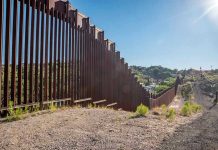
Donald Trump demanded the arrest of two of America’s most prominent Democratic leaders—Chicago Mayor Brandon Johnson and Illinois Governor JB Pritzker—escalating a bitter standoff over immigration, federal authority, and the limits of presidential power to a level not seen in modern American history.
Story Snapshot
- Trump publicly called for the arrest of Mayor Johnson and Gov. Pritzker, accusing them of failing to protect federal immigration officers and obstructing federal immigration enforcement in Chicago.
- The demand followed the launch of “Operation Midway Blitz,” a federal crackdown on undocumented immigrants, and clashes between protesters, federal agents, and local police.
- Illinois and Chicago sued to block National Guard deployment, marking a rare legal and political challenge to federal authority.
- No criminal charges have been filed against Johnson or Pritzker; Trump’s call is widely seen as a political maneuver, not a legal action.
- The conflict raises urgent questions about federalism, states’ rights, and the rule of law in a deeply polarized America.
The Powder Keg Ignites
Chicago, a self-declared sanctuary city, has long been a flashpoint between federal immigration policy and local resistance. In September 2025, the Trump administration launched “Operation Midway Blitz,” deploying federal agents and National Guard troops to conduct raids and enforce immigration laws in the city. The operation sparked immediate protests, with demonstrators clashing with both federal and local law enforcement outside ICE facilities. The Department of Homeland Security requested additional security, but Illinois and Chicago officials refused to cooperate, arguing federal overreach and unconstitutional militarization of local streets.
From Rhetoric to Retribution
On October 6, Illinois and Chicago filed a lawsuit to block the deployment of National Guard troops, setting the stage for a constitutional showdown. Two days later, Trump took to Truth Social, declaring, “Chicago Mayor should be in jail for failing to protect ICE Officers! Governor Pritzker also!” Trump’s unprecedented demand for the arrest of sitting state and city leaders—without any criminal charges—drew immediate condemnation and alarm. Pritzker shot back, “Trump is now calling for the arrest of elected representatives checking his power. What else is left on the path to full-blown authoritarianism?” Mayor Johnson, referencing Trump’s history of targeting Black leaders, stated, “This is not the first time Trump has tried to have a Black man unjustly arrested. I’m not going anywhere.”
It's not a great state of affairs when the president is calling for the arrest of his political opponents at the same time he's sending the military into the streets.https://t.co/XK34bmiX32
— reason (@reason) October 9, 2025
Legal Lines in the Sand
The legal and constitutional stakes are immense. The Tenth Amendment reserves powers not delegated to the federal government to the states, and courts have repeatedly ruled that local police cannot be compelled to enforce federal immigration laws. Chicago’s “Welcoming City Ordinance” explicitly limits cooperation with ICE, and the city has established “ICE-free zones” on public property. Legal scholars warn that Trump’s call for arrest, absent any criminal conduct, undermines democratic norms and the rule of law. Major outlets, including TIME and Axios, confirm no charges exist against Johnson or Pritzker; Trump’s demand is political, not legal.
Who Stands Where
Trump’s supporters argue that federal intervention is necessary to protect public safety and uphold the law, pointing to Chicago’s crime rates and the city’s refusal to cooperate with ICE. Critics, however, see the move as a dangerous escalation—using the power of the presidency to target political opponents and intimidate local governments. The conflict has drawn in the Department of Homeland Security, the Illinois National Guard, local police, protesters, and the courts, each with competing claims of authority and legitimacy.
The Human Cost
Immigrant communities in Chicago report increased fear and uncertainty as raids intensify. Residents describe a city under siege, with federal troops patrolling neighborhoods and frequent clashes between protesters and law enforcement. Local officials strain city and state resources to mount legal defenses and maintain public order. The economic and social impacts are felt citywide, with businesses disrupted and trust in government eroding on all sides.
What Comes Next
The immediate future hinges on the courts. If the lawsuit to block National Guard deployment succeeds, it could set a precedent limiting federal power over local policing. If it fails, the door opens wider for federal intervention in cities that resist presidential directives. Either outcome risks further polarizing the nation and testing the resilience of America’s federalist system. Political analysts warn that such confrontations, if unchecked, could normalize the use of federal force against local governments and elected officials who defy the White House.









